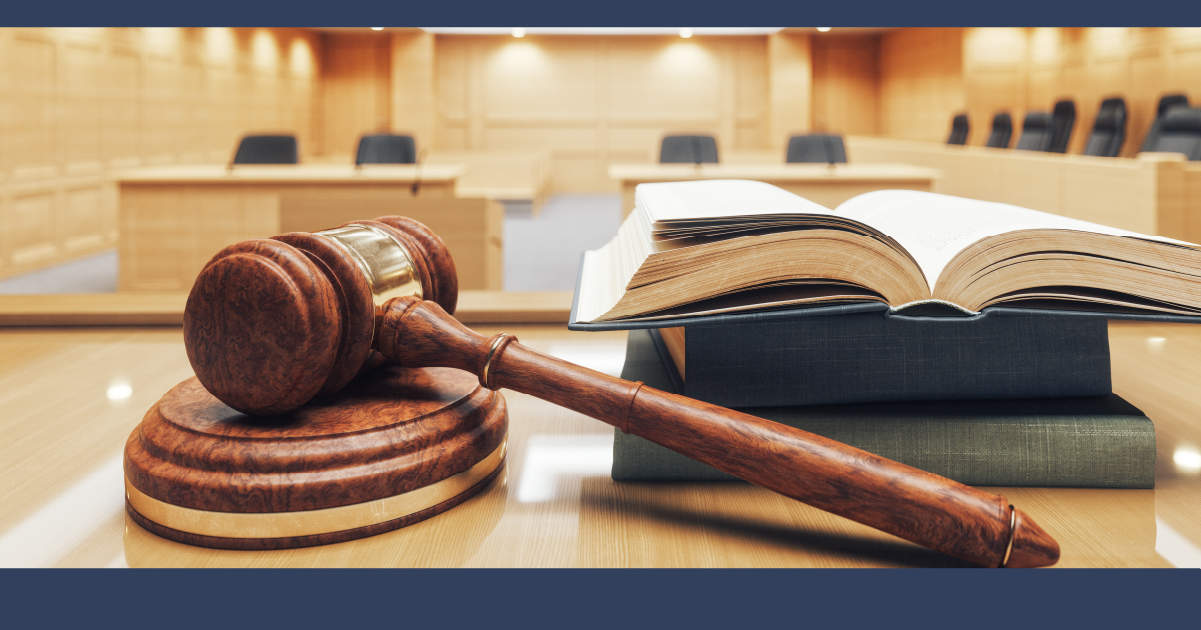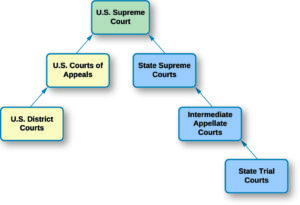what if a person who is not satisfied with an appellate court’s decision
Exploring Legal Recourse: Taking a Case Beyond the Appellate Court’s Decision
In the realm of the legal system, when an individual finds themselves dissatisfied with the outcome of a case determined by an appellate court, they possess the option to pursue further legal avenues. This article delves into the possibilities available for a person who is discontent with an appellate court’s ruling and wishes to seek an alternative resolution. From different trial courts to higher courts and even federal courts, the legal landscape offers several avenues for reevaluation and recourse.
Seeking Redress: Options Beyond the Appellate Court
Different Trial Courts
In the event that an individual remains dissatisfied with the outcome of their case determined by an appellate court, they possess the option to take their case to a different trial court. This can provide an opportunity for the case to be reconsidered by a new set of legal minds, potentially leading to a more favorable verdict.
Ascending to Higher Courts
When discontentment with an appellate court’s decision lingers, taking the case to a higher court emerges as a viable route. This involves presenting the case to a court with greater jurisdiction and authority. However, this path comes with its own set of challenges, as a higher court could dismiss the appeal or even levy a harsher punishment.
see also Denton Municipal Court
The Federal Court Route
Another avenue available to individuals seeking redress is presenting their case before a federal court. This approach is particularly relevant when the matter involves federal laws or constitutional issues. Navigating federal courts requires a keen understanding of the legal nuances at the federal level.
The Dynamics of Taking a Case to a Higher Court
Appealing to a higher court entails careful consideration of the potential outcomes. While the prospect of a more favorable decision is enticing, the reality is that the appeal could backfire, resulting in a less desirable judgment. Individuals considering this path must weigh the potential risks and benefits and make an informed decision.
Consultation with Legal Experts: A Prudent Step
Before embarking on the journey of further appeals, seeking guidance from legal experts is a crucial step. Legal professionals can provide insights into the viability of the appeal, potential challenges, and the likelihood of success. Their expertise can empower individuals to make an informed choice.
The Scope of Appeal: Guilty Verdicts and Sentencing
The scope of appeal extends beyond just verdicts. Individuals can also appeal against the severity of their sentences. This avenue is particularly relevant when a person believes that the punishment handed down by the court is disproportionately harsh or unjust.
Limitations on the Crown’s Right to Appeal
In the legal landscape, there are limitations on the Crown’s ability to appeal. While the Crown cannot appeal a jury’s decision of not guilty, it does have the authority to seek sentence adjustments. This balance ensures that the appeal process remains fair and just.
Emphasizing Access to Justice and Due Process
The ability to appeal is a cornerstone of justice and due process in a democratic society. It ensures that every citizen has the opportunity to seek a fair resolution and correct any potential errors in legal proceedings. This avenue upholds the principles of justice and societal order.
The Function of Appellate and Higher Courts in Democracy
Appellate and higher courts play a pivotal role in the legal system’s functioning. They provide a mechanism for reevaluation, ensuring that legal proceedings uphold the principles of fairness and justice. The hierarchy of courts ensures a thorough analysis of cases, minimizing the risk of unjust outcomes.
The Role of the Supreme Court in Upholding Justice
At the zenith of the judicial hierarchy lies the Supreme Court. It serves as the ultimate bastion of justice, taking on cases of exceptional importance and complexity. The Supreme Court’s involvement ensures that justice is not only served but also upholds the values of the legal system.
Ensuring Fair Verdicts Through Multiple Judge Analysis
One of the key benefits of appealing to higher courts is the involvement of multiple judges in the decision-making process. This plurality of perspectives reduces the chances of a single biased or flawed judgment. The collective wisdom of multiple judges enhances the fairness of the verdict.
Potential Impacts of Further Appeals on Sentencing
While the pursuit of further appeals may result in a more favorable outcome, it’s essential to acknowledge the potential risks. In some cases, the higher court could rule in favor of a harsher sentence, underscoring the importance of consulting legal experts before embarking on this path.
Balancing the Pursuit of Justice with Legal Realities
As individuals contemplate further appeals, it’s imperative to strike a balance between the pursuit of justice and the practical realities of the legal system. The decision to appeal should be grounded in a clear understanding of the potential consequences and benefits.
A Personal Decision: Navigating the Appeal Process
Ultimately, the decision to pursue further legal appeals is deeply personal. It involves a careful assessment of one’s case, consultation with legal professionals, and consideration of potential outcomes. By being well-informed and prudent, individuals can navigate the appeal process effectively.
Conclusion: Navigating the Path of Legal Appeals
In conclusion, the journey of seeking recourse beyond an appellate court’s decision is rife with complexities and potential outcomes. Individuals dissatisfied with the verdict have various paths to explore, from different trial courts to higher courts and federal courts. Each avenue comes with its own set of challenges and benefits, necessitating careful consideration and expert consultation. The pursuit of justice is a fundamental right, and the legal system provides mechanisms to ensure fairness and accountability. As you consider your options, remember that the legal landscape is intricate, and seeking the advice of legal experts can guide you toward the best possible course of action.
see also Georgetown DE Family Court
FAQs
Q1: What options do I have if I disagree with an appellate court’s decision?
A1: If you’re unhappy with an appellate court’s ruling, you can explore options like taking the case to a different trial court, a higher court, or even a federal court, depending on the nature of the case.
Q2: Is appealing to a higher court always beneficial?
A2: While appealing to a higher court can lead to a more favorable outcome, there’s also a risk of facing a harsher judgment. It’s crucial to weigh the potential benefits against the risks.
Q3: Can I appeal against the severity of my sentence?
A3: Yes, you can appeal against the severity of your sentence if you believe it’s unjust or disproportionate. Seeking legal counsel before proceeding is advisable.
Q4: How can legal experts help in the appeal process?
A4: Legal experts can provide insights into the viability of your appeal, potential challenges, and the likelihood of success. Their guidance can empower you to make an informed decision.
Q5: What role does the Supreme Court play in the appeal process?
A5: The Supreme Court serves as the highest authority for legal appeals. It takes on cases of exceptional importance, ensuring the upholding of justice and legal principles.








